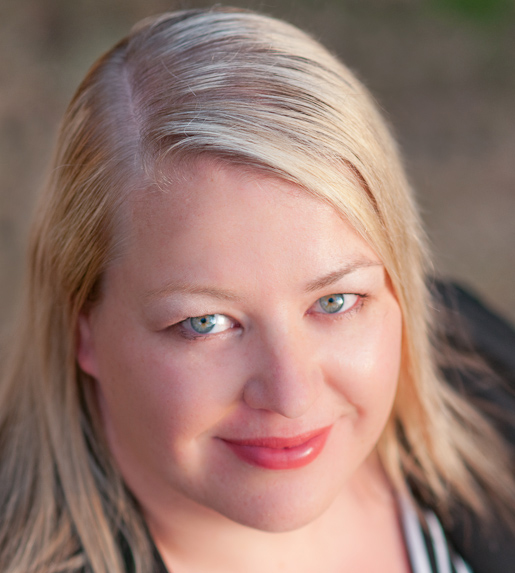BRAZEN
★ ★ ★ ★
GHOST IN THE MACHINE

By Melanie Schoo
This article recounts a personal sexual assault incidence and may upset some people.
It’s funny the role that our senses play in memories. Whilst the way things looked or sounded might have faded around the edges, certain smells have imprinted so strongly on me that they act like a time machine.
Last week, watching the testimony of Dr Christine Blasey Ford, all I could smell was Calvin Klein Obsession for Men.
That was the aftershave worn by the boy who sexually assaulted me at a party when I was 16. Whilst I’ve done my best to move on from that experience and put the hurt that it caused away, there are still occasional pinpricks of stimuli that bring it back into focus. No amount of therapy is going to make this go away. When I smell this fragrance or hear about similar experiences, I’m haunted by something that happened more than 20 years ago.
Here’s what I remember. I was at a birthday party for someone I sort of knew. He was the boyfriend of a girl I was “say hello to, but don’t really interact with outside of school” friends with. It was at his parents’ house, there were probably about one hundred kids from my school (the local “catholic ladies college”) and our brother school. The party was mostly outside, but there was an open garage with a pool table, a nice rotation of nineties music and groups of kids hanging about drinking whatever alcohol they had managed to get their hands on.
Underage drinking was pretty commonplace. I think I’d split a six-pack of lemon vodka things with my friend. I wasn’t drunk, but I was definitely under the influence. It was the middle of spring, but the nights were still cold. I was wearing black pants, a top that I had bought especially for the party and a black coat. I was almost certainly wearing high-heeled shoes that hurt my feet. I was feeling a bit vulnerable because a boy that I had a crush on had told me he just wanted to be friends.
I started talking to a boy at the pool table. He was a year older and seemed very confident. I was spectacularly bad at pool, on purpose, because it always meant a boy would “help” me. We talked for about half an hour, he got me a fresh drink and was being sweet. After we finished playing pool, he took my hand and asked me if I wanted to go for a walk.
In the awkward teen courting rituals of middle-class Australian suburbia in the late 90s, going for a walk with someone at a party meant something. Yes I wanted to kiss him, I think. I definitely wanted him to want to kiss me, because that meant that I was still desirable to someone. We walked to a nearby park and kept talking, we kissed and then he pushed me onto the ground. When I tried to move, he held me down and pinched my arms. When I told him to stop, he called me a bitch and a desperate slut.
I wasn’t an innocent virgin in a white dress who was brutalized by a monster. I was a teenager who went to a party and kissed a boy, who then sexually assaulted me when he wanted to take things further and I didn’t. He wasn’t a gory predator from a scary movie, he was just a suburban teenager who believed that his desire and right to feel good trumped my right to say no.
I remember being a bit numb afterwards. I was sore and in shock. I left the party shortly after. Four days later I had the most horrible bruises on my arms, which meant I had to wear my blazer over my school dress, even though the summer weather had kicked in.
This isn’t a secret. I didn’t hide what had happened, I told the friend who stayed over after the party. I know he told his friends, because a few comments and rumors were gleefully repeated back to me by a girl I hated. A few weeks later, I told my parents and the school counsellor. Nothing happened. I didn’t know how anything could. I didn’t want things to get further out of my control or to have more people judge me. I just wanted it to go away.
Two years later, when he unexpectedly crossed my path and was in my space again, it was more traumatic. For about six months, I would run into him several times a day. It was unavoidable and being constantly alert and on edge managed to rip whatever protective padding I’d built up over that particular wound and keep it open. He never spoke to me, or even looked at me. Today people almost use the word trigger with scorn, as though it only applies to people too sensitive to cope with the realities of everyday life, but I was triggered. It’s now been about ten years since I last saw him, but I can’t forget him. My subconscious will always be on alert for his name, his face and his smell.
Most people have been comfortable believing that this sort of thing is either uncommon, or just a case of boys being boys. What the #metoo era has shown us, is that both of these assumptions are incorrect. I know I’m not the only person in my peer group to have an experience like this, and equally, I know plenty of men who managed to survive their late teens and early twenties, and all that goes with it, without sexually assaulting someone.
Nobody wakes up one day and decides to hurt somebody. Without the underlying belief that the other person is less important, less human and worthy of respect, all the alcohol and arousal in the world can’t lead somebody to do this to someone else. Rape and sexual assault isn’t about emotion or desire, it’s about power and control. Sex is used as the mechanism, because it adds to the degradation of the other person.
In searching for a solution to this problem, I think we’re looking at the wrong part of the equation. We talk about increasing penalties and sentences to act as a deterrent, we tell women not to walk home alone or wear headphones or dress provocatively. None of this is working. Our system of laws and the process of prosecuting and punishing behavior reflect our community standards. If we want to eliminate stories like mine, the solution lies in people seeing woman as equal beings, not princesses to be rescued, pin-ups to be fantasized over, mothers and maids or threats to masculinity.
This incident deeply hurt, disrupted and upset me, but it didn’t destroy me and it certainly doesn’t define me. In sharing this story, I’m not looking for sympathy or validation – as countless women before me have shown, a woman who comes forward with this story has plenty to lose and very little to gain. I’m asking you to listen to these stories and respect the people who are sharing them. It’s the only way that things will change.

Melanie is a communications professional who has worked in the not-for-profit sector for more than 15 years. A reformed social media addict, she has been condemned, attacked, and blocked by most right-wing tabloid journalists for being a “rabid leftie feminist social justice warrior”. She has a pair of 24-year-old Doc Martens, a fondness for Harry Potter and some very spoilt pet poodles. She lives in Melbourne, Australia.

DEAR READER
At The Wild Word we are proud to present some of the best online writing around, as well as being a platform for new and emerging writers and artists.
If you have read the work in The Wild Word and like what we do, please put something in our tip jar.
THANK YOU FOR YOUR SUPPORT!
























0 Comments